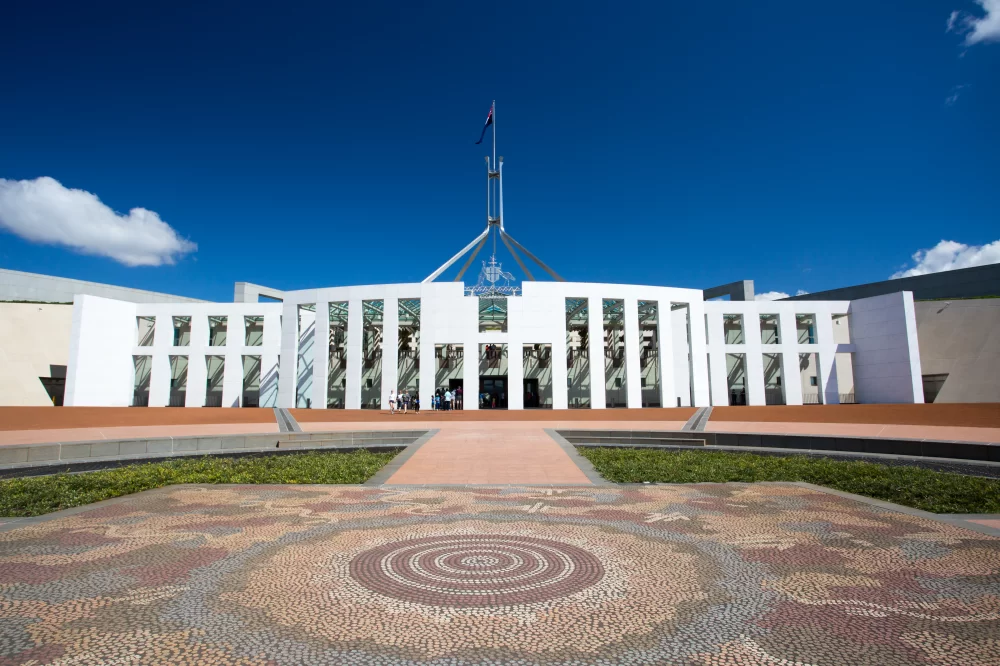Budget 2022: Small Business Wins and the Impact on Business Sales

Budget 2022: 4 Wins for Small Business
Tuesday’s federal budget was much anticipated by small business owners. With a number of ideas put forward, we take a look at the wins for small businesses and how they may impact business sales in the future.
Skills shortages are a major issue faced by many business owners. At the centre of this 2022 Federal Budget was how to get people back into the workforce.
“Australia is facing its most significant skill shortage in decades, exacerbated by COVID-19 and 10 long years of policy neglect. To provide greater opportunities for Australians to have secure and rewarding employment we must be able to skill and reskill our workforce.” Minister for Skills and Training Brendan O’Connor said.
Business owners have been doing it tough over the past few years. Helping to rebuild the Australian economy starts with helping business owners run better businesses in the current climate.
5 million people are employed by small businesses, that's 44 per cent of Australia's workforce. They need help to rebuild. Whilst there is always shortcomings in every Federal Budget we take a look at some of the wins for small business and what they can mean for business sales.
1. Mental Health Support
Nearly $15 million in funding is allocated to mental health support and debt counselling for small businesses. This is a great initiative.
The Government will be directing $10.9 million towards the NewAccess for Small Business Owner program, operated by BeyondBlue.
The program is designed to specifically assist business owners. All coaches are trained and have a background in small business, so they understand the unique challenges business owners face.
With no GP referral required and no fees involved this is a great step forward. Over 6 sessions, a mental health coach will work with a business owner to discuss their situation and strategies for stress management and problem-solving.
This is a very encouraging aspect of the budget. The pressure felt by many business owners on how to manage their own mental health, and their teams have been increasing over the past 2.5 years.
Financial pressures, rising inflation, covid restrictions and health issues have created a difficult few years for many business owners to navigate. It's good to see the Federal Budget addressing this issue.
2. Cheaper Childcare
An often contentious issue was the rising cost of childcare and how parents can return to the workforce, especially women.
Parenting business owners know all too well the difficulties of juggling childcare and running a business. The Federal Government is investing $4.7 billion over 4 years to make early childhood education and care more affordable for Australian families.
Eligible families earning less than $530,000 will be able to access a subsidy rate of up to 90 per cent for any children in care aged 5 and under.
This subsidy is giving a greater push to women to return to work and push to the workforce with an anticipated 1.4 million hours per week expected in 2023-2024. Which is equivalent to 37,000 full-time workers.
What this means to the quality of family life and expectations of families will be interesting. It does however give parents the option to place their children in care and return to work.
It is the increase push to get more people into the workforce. It is also good news for childcare centres as the subsidy means more parents are financially capable of taking up placements.

3. Fee-Free Tafe and Increased Uni Placements
A strong economy needs a good workforce. Increased training is good for business.
The Government is delivering 480,000 fee-free TAFE and vocational education places, with extra support for the involvement of women and other disadvantaged groups.
To address the skills shortage currently faced in Australia, the Government is entering a $1 billion agreement with the states and territories to provide 180,000 places in 2023.
“This Budget is about securing a more robust economy and tackling one of our greatest economic challenges in decades, the lack of skilled workers,” Minister for Skills and Training Brendan O’Connor said.
Extra training places will be delivered in the critical skill shortage areas:
-
Care, including aged care, early education and care, health care, disability care
-
Technology and Increasing digital skills.
-
Hospitality and tourism;
-
Construction;
-
Agriculture; and
-
Increasing our sovereign capability in areas like manufacturing, and Defence.
It will provide extra places for people studying bachelor and sub-bachelor courses in areas of skills need across 42 successful higher education providers.
Higher education providers have been allocated places in the following areas:
-
4,036 places in education, including 1,469 for early education teachers
-
2,600 places in nursing
-
2,275 in IT
-
2,740 in health professions like pharmacy and health science
-
1,738 in engineering.
“After a decade of inaction by the previous Government, Labor is wasting no time to address the skills shortages the country faces. These fee-free training places will provide Australians opportunities to get trained for the jobs in demand now and in the future and deliver to business the skilled workers they need.” Skills and Training Minister Brendan O'Connor
4. Tax Cuts for Electric Vehicles
Australia has been lagging in the race in rolling out electric vehicles. With the cheapest car on the market being an MG ZS EV EXCITE from $44,990, there is a push for the Government to provide subsidies.
If your business is in the transport industry, there is some good news for tax cuts and increase sales of electric vehicles and products.
“The policies could shave $4700 off the cost of buying an electric car for an individual and $9000 for an employer.” Perth Now
$275.4 million is being invested over six years in the Driving the Nation Fund which aims to increase cleaner transport across Australia.
Of this, $39.8 million is being invested in the National Electric Vehicle Charging Network which will see 117 fast charging stations on highways across Australia. In partnership with the NRMA this will see a charging station placed every 150km on major roads.
What it Means for Business Sales
We don’t want to see quality businesses closing. We want to see business sales.
A transfer of ownership, so a person with new ideas, new skills, and new visions can walk into a business and continue to operate it, make it better, and keep building. Closing the doors of a successful business is not always the best option, though sometimes the easiest for owners who are struggling.
A business that struggled due to financial or other pressures, was still a business. There was a vision and a person's drive behind it. Keeping that flame alive, and allowing a business to grow and get better should be at the forefront of Government initiatives. We want successful businesses.
There was a 7% increase in the number of businesses operating in Australia as of June 30, 2022. 472,000 new businesses started and 305,000 closed.
12.7% of businesses closed their doors, for a number of reasons. It's never the dream of a new business owner to start a business, and then just close the doors.
Business owners start with the ideas of success. Providing a product or service that people want, and generating an income.
Anyone who has ever owned a business knows the hard work that goes into starting, building and growing a long-term successful business. It's a fairytale to think that every business will be a success. A lot of ABNs are created, and no business actually built. A lot of businesses just weren't viable.
The current skills shortages and reduced lending is making it difficult for businesses to transfer ownership. Depending on the industry and type of business for sale, there are external pressures affecting the sale. A stronger economy can reduce these pressures, making it easier for business sales.
In a strong stable economy, with solid a workforce business sales can be more common and more successful. Transferring, buying, acquiring or selling a business becomes more ideal. The transactions are easier, lending is easier, and the future projections of the businesses for sale are more predictable.
Business owners need support. The 5 million people employed by small businesses need them to be successful.
Whilst there were a number of key issues raised by business leaders excluded from the Federal Budget, there were some positive steps forward. The mental health initiative, childcare subsidy, increased educational places and subsidies for electric vehicles are steps in the right direction.
Tags: 2022 legal government finance funding
About the author

Vanessa Lovie
CEO Bsale Australia
Vanessa is the current manager and CEO of Bsale Australia. Over the past 11 years as a business owner, she understands what it takes to grow a ...





